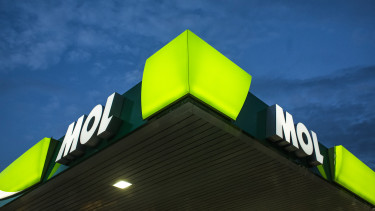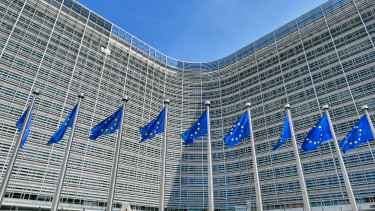Business
Apple takes mobile payment to a new level - What are tech giants up to?
This is an interesting move from Apple. In October 2014, Apple Pay enabled users to make payments in stores, in iOS apps, and on the web. Apple has invested aggressively in services such as their Cloud business, Apple Pay and Apple Music to counter possible declines from its hardware business. Expanding their offering, especially on payments is not a surprise as Apple reported its first holiday-quarter sales decline since 2001. Their focus on payments is what I’ll comment on.
Apple has identified, as this report from Juniper confirms, that NFC based payments, namely Apple Pay and Google Pay for in-store payments in the US is experiencing a decline in usage.
Payments is the world’s biggest industry; all other industries rely on it, and it is the underlying rails for all-things commerce. A company like Apple, just as Google, Facebook and Amazon naturally want to leverage the success of this industry. So when Apple recognised its payment initiative, namely Apple Pay as we know it - paying in store by clunking your phone to a payment terminal - is not resonating with its customers, what do you do?
Learning from the mobile payment success of others, such as Alipay, Venmo, Zelle, Vipps, MobilePay, Swish, PayTM, Tez (now Google Pay) and a growing number of successful proprietary app based payment services, companies have realised that you can’t win unless you cover both sides of the equation. That is, providing both an easy to use tool for people to send and receive money and to pay to merchants.
This is exactly why Alipay and the list mentioned above has made such a massive impact on business in their markets, because they are focusing on both sides and particularly on merchants that are not well served, and connecting them to consumers using the app. Think of it as the Starbucks app for any merchant. Order and pay, skip the queue, browse offers, pay online etc.
So, back to Apple Pay. Apple quickly realised that the person to person part was missing from their initiative, so they added it. The problem with their p2p offering is that it’s locked down to iOS devices. Simply put, it only works between people you know are on iMessage, so it has limited usage and is not platform agnostic.
There’s also another challenge for Apple. For p2p to work, consumers need money to be able to send it. And when you receive that money, the money needs to land somewhere useful. Ideally into your bank account, but Apple wants you to keep it with them. There are many reasons for this. One being that once you receive money, you have money to send, partly solving the funding issue as long as someone starts the cycle. Secondly, because its expensive and troublesome for Apple to send money out to bank accounts; it becomes a compliance and cost challenge. And thirdly; why not become the bank of your loyal customers? Storing their money would give you control and interest revenue.
However, because it’s troublesome for people to pre-pay money into this payment ecosystem for iOS users only, people are probably not joining at the rate Apple wanted. So what is Apple’s solution? Remove the need for pre-paying, and provide people with credit. And that is what has been published now, the Apple Pay credit card in collaboration with Goldman Sachs.
Time will tell whether this will pique consumer and business interest. Even if people are attracted to Apple Pay Credit, there is still probability that Apple Pay and other NFC solutions will continue to lose ground globally, to the proprietary app based payment schemes. Google has identified this move, and evolved their strategy, stepping away from focusing on NFC and putting these app based opportunities in the front row by bringing their TEZ initiative in under the Google Pay brand.
Whilst Apple and Goldman Sachs are yet to comment on the announcement, it will be interesting to see how this collaboration unfolds. Surely Apple has seen the successes of AliPay in China and Google Tez in India. As consumers and businesses slowly move away from NFC payments, tech giants like Apple must continue to innovate and evolve their mobile payment technologies in order to keep up with digital payment trends. If credit is enough to make Apple Pay relevant, time will tell, but it does not go without its own set of challenges.
Perhaps one of Apple’s biggest challenges will be how to manage relationships with the banks if they consider themselves a credit provider. Once, these were Apple’s partners to launch and distribute Apple Pay in their respective markets. But, will Apple now be considered a competitor?
The article was originally published ad Daniel Döderlein’s blog post on auka/io on 6 March, 2019.
Auka pioneered the mobile payments space in the Nordics and launched the first mobile wallet in Norway in 2014. Settle, a pan-European mobile payment system is to be launched in Hungary shortly. Auka claims that Settle offers financial institutions the ability to protect their market position, monetise their customers and fight the competition from tech giants.
Apple has identified, as this report from Juniper confirms, that NFC based payments, namely Apple Pay and Google Pay for in-store payments in the US is experiencing a decline in usage.
Payments is the world’s biggest industry; all other industries rely on it, and it is the underlying rails for all-things commerce. A company like Apple, just as Google, Facebook and Amazon naturally want to leverage the success of this industry. So when Apple recognised its payment initiative, namely Apple Pay as we know it - paying in store by clunking your phone to a payment terminal - is not resonating with its customers, what do you do?
Learning from the mobile payment success of others, such as Alipay, Venmo, Zelle, Vipps, MobilePay, Swish, PayTM, Tez (now Google Pay) and a growing number of successful proprietary app based payment services, companies have realised that you can’t win unless you cover both sides of the equation. That is, providing both an easy to use tool for people to send and receive money and to pay to merchants.
This is exactly why Alipay and the list mentioned above has made such a massive impact on business in their markets, because they are focusing on both sides and particularly on merchants that are not well served, and connecting them to consumers using the app. Think of it as the Starbucks app for any merchant. Order and pay, skip the queue, browse offers, pay online etc.
So, back to Apple Pay. Apple quickly realised that the person to person part was missing from their initiative, so they added it. The problem with their p2p offering is that it’s locked down to iOS devices. Simply put, it only works between people you know are on iMessage, so it has limited usage and is not platform agnostic.
There’s also another challenge for Apple. For p2p to work, consumers need money to be able to send it. And when you receive that money, the money needs to land somewhere useful. Ideally into your bank account, but Apple wants you to keep it with them. There are many reasons for this. One being that once you receive money, you have money to send, partly solving the funding issue as long as someone starts the cycle. Secondly, because its expensive and troublesome for Apple to send money out to bank accounts; it becomes a compliance and cost challenge. And thirdly; why not become the bank of your loyal customers? Storing their money would give you control and interest revenue.
However, because it’s troublesome for people to pre-pay money into this payment ecosystem for iOS users only, people are probably not joining at the rate Apple wanted. So what is Apple’s solution? Remove the need for pre-paying, and provide people with credit. And that is what has been published now, the Apple Pay credit card in collaboration with Goldman Sachs.
Time will tell whether this will pique consumer and business interest. Even if people are attracted to Apple Pay Credit, there is still probability that Apple Pay and other NFC solutions will continue to lose ground globally, to the proprietary app based payment schemes. Google has identified this move, and evolved their strategy, stepping away from focusing on NFC and putting these app based opportunities in the front row by bringing their TEZ initiative in under the Google Pay brand.
Whilst Apple and Goldman Sachs are yet to comment on the announcement, it will be interesting to see how this collaboration unfolds. Surely Apple has seen the successes of AliPay in China and Google Tez in India. As consumers and businesses slowly move away from NFC payments, tech giants like Apple must continue to innovate and evolve their mobile payment technologies in order to keep up with digital payment trends. If credit is enough to make Apple Pay relevant, time will tell, but it does not go without its own set of challenges.
Perhaps one of Apple’s biggest challenges will be how to manage relationships with the banks if they consider themselves a credit provider. Once, these were Apple’s partners to launch and distribute Apple Pay in their respective markets. But, will Apple now be considered a competitor?
The article was originally published ad Daniel Döderlein’s blog post on auka/io on 6 March, 2019.
Auka pioneered the mobile payments space in the Nordics and launched the first mobile wallet in Norway in 2014. Settle, a pan-European mobile payment system is to be launched in Hungary shortly. Auka claims that Settle offers financial institutions the ability to protect their market position, monetise their customers and fight the competition from tech giants.
Daniel Döderlein
CEO
Auka
Norwegian native, fintech pioneer and top 200 European fintech influencer, Daniel Döderlein is the CEO and founder of Auka. He has more than 20 years of entrepreneurial experience in the fields of IT, product development,... Read more»













